Book of the Day Roundup March 30-April 3, 2020

To Make Room for the Sea
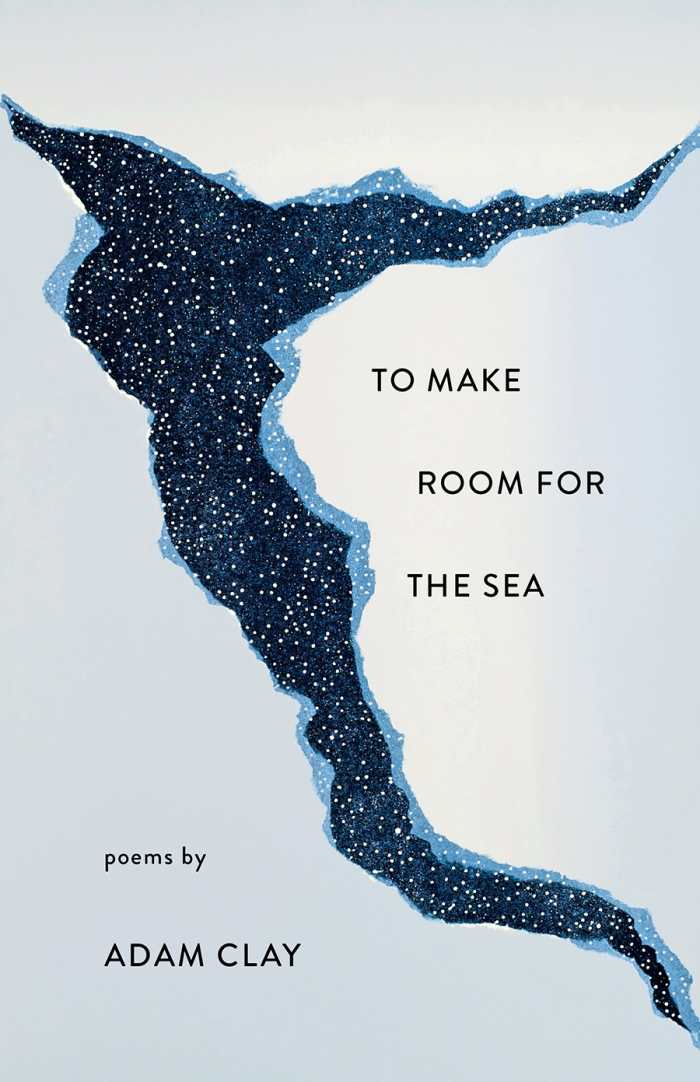
Adam Clay
Milkweed Editions
Softcover $16.00 (88pp)
978-1-57131-497-0
Buy: Local Bookstore (Bookshop), Amazon
In his fourth book of poetry, To Make Room for the Sea, Adam Clay notes, “The line between the public and personal? It depends on the world.” His poems play with the connection between individual experiences and the public, political nature of moving through the world, chronicling the impulses and emotions behind invisible connections and interrogating chance, choice, and linearity.
Clay ruminates with a high level of abstraction that’s asymmetrically paired with the tangible. Haunted by persistent distance and hedging, the poems seem vegetative at times, with a burden and layering of words. Whether they’re bent toward syntactic inversion for the sake of form and lineation, or idiosyncratically using “one”—as in “one wonders / where to find rest again”—their language becomes something overgrown and wild. Long lines are enjambed like continuous trailing thoughts, prepositional phrases are stacked, and additive observations mold the poems’ momentum like friction.
The standout “Mississippi Elegy” states:
The real wilderness is not out
there—it’s in here, deep inside
the quick run of blood. Every day
I consider what going home means
now that I’m here again:
There’s a deep sense of elegy in the collection’s tone. Utilizing a circular rhythm and logic that bends toward return—whether from sleep to wakefulness, or from abstraction to physicality—the poems evoke a complex wistfulness.
Clay treads a borderland between nostalgia and mourning, but there’s also a vein of optimism: “Not a happy accident, / but more a blur of accidental happiness / smudged with a tone I can’t quite name.” If there’s an ars poetica in To Make Room for the Sea, it’s that “there’s always a / specific way to feel homesick, a way to chart the path to loneliness / without knowing its sort or its source.”
LETITIA MONTGOMERY-RODGERS (February 27, 2020)
Of Green Stuff Woven
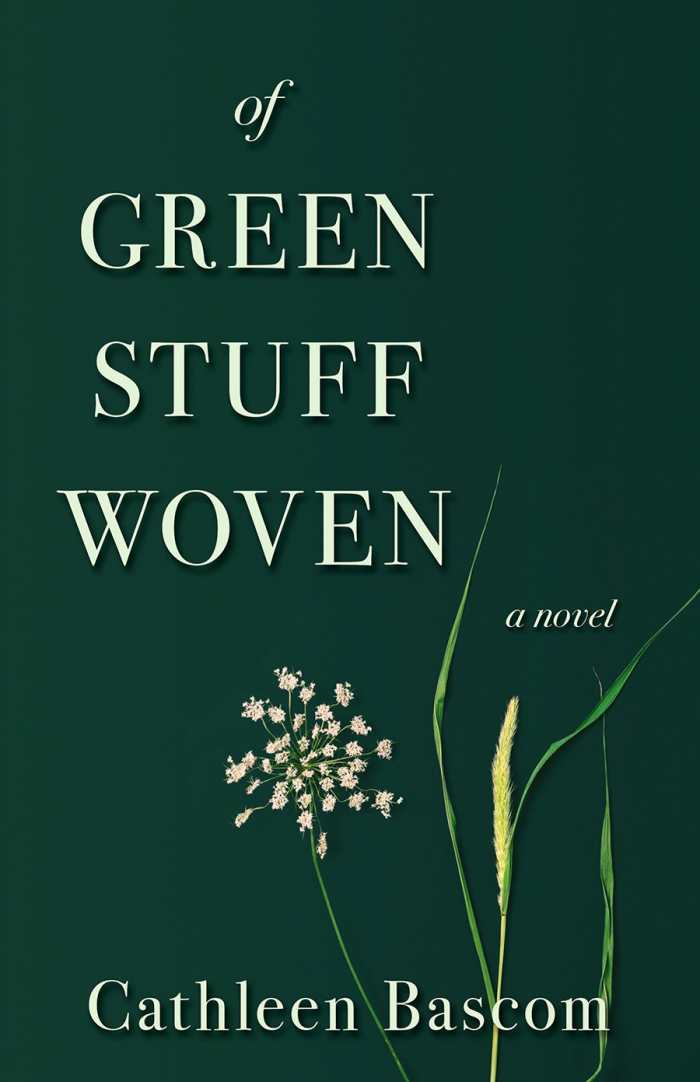
Cathleen Bascom
Light Messages Publishing
Softcover $16.99 (282pp)
978-1-61153-336-1
Buy: Local Bookstore (Bookshop), Amazon
In Of Green Stuff Woven, theology and pragmatism butt heads, with the fate of the prairie and a Des Moines cathedral hanging in the balance.
Brigid, who’s the dean of a historic cathedral, has a crisis on her hands. Her Episcopal congregation is dwindling, and with it go the funds needed to maintain St. Aidan’s and its ministries. When Brigid is approached with an offer of almost four million dollars for the prairie land that the church has been restoring, it seems to be St. Aiden’s hope of salvation.
But environmentally conscious Brigid, along with the members of the cathedral’s Prairie Team, are not so sure. Max, who’s a powerful businessman and a St. Aidan’s congregant, appears poised to benefit financially from the deal, and a split begins to form in the church. Brigid navigates these tricky waters while trying to discern the right path to take.
There are no easy answers, and the novel avoids the pitfall of vilifying one side of the debate. Max at times skirts the line to becoming an outright villain, but Brigid, too, has flaws, which she recognizes along with her need for grace. Poignant moments of reflection pepper the narrative as gentle reminders of each character’s humanity. In the end: grace wins out.
Chapters alternate between the main story around the cathedral and a secondary thread focused on Brigid’s life. While the biographical sections are insightful when it comes to understanding Brigid, they sometimes intrude on the more engaging primary story. Gentle prose that exemplifies an obvious love for plants carries interest through. Each chapter is headed with a horticultural entry and illustration from Brigid’s journal, tying a specific plant to the events of the chapter.
Bursting with botanical piquancy, Of Green Stuff Woven is a novel about the relationship between humans, their environment, and the divine.
MEAGAN LOGSDON (February 27, 2020)
Little Siberia
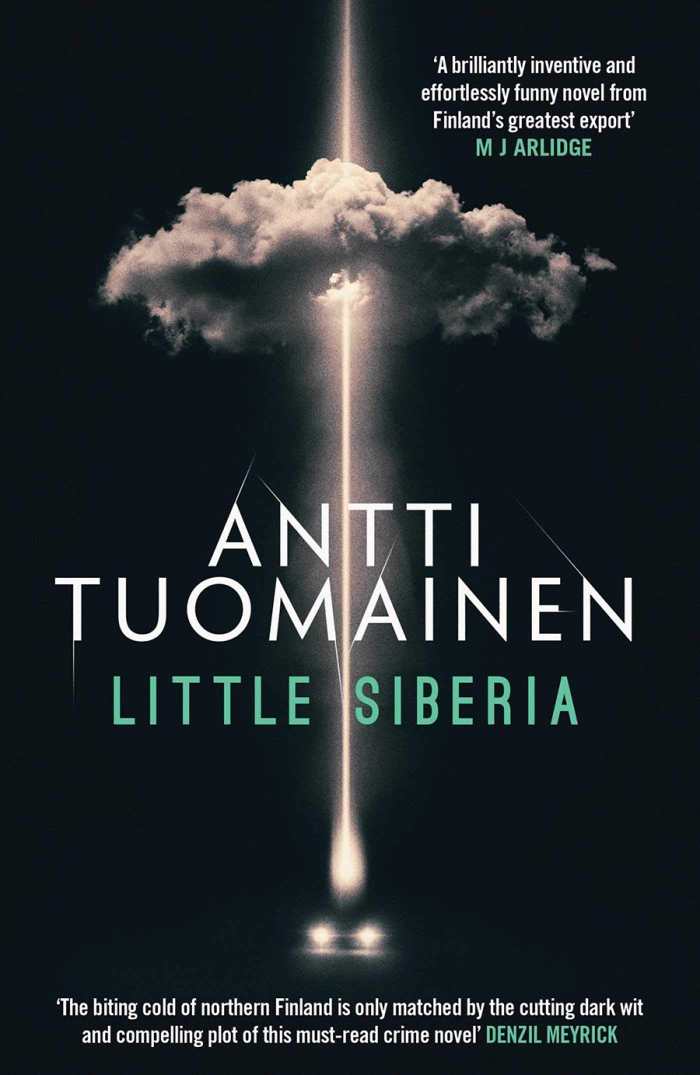
Antti Tuomainen
David Hackston, translator
Orenda Books
Softcover $15.95 (300pp)
978-1-912374-51-9
Buy: Amazon
A meteorite plunges from the sky, its impact stirring up a small Finnish community’s vices. This celestial act begins Little Siberia, the latest engrossing title from snark noir master Antti Tuomainen.
Who owns the heavens? If you ask disgraced race car driver Tarvainen, he’s entitled to at least a piece. After all, he only missed a meteorite-braining by centimeters; when his car came to a stop with the steaming treasure in his passenger’s seat, it felt like providence. But scientists are laying claim to the rock, too. They’ve valued it at a million euros—enough to change anyone’s life. Until they can retrieve it, the meteorite waits in Hurmevaara, guarded by local volunteers.
Among these volunteers is Joel, a practical priest who’s got more on his mind than the possibility of the sky falling down. His wife, Krista, has announced that she’s pregnant—inexplicably, as Joel is unable to propagate. For Joel, the shadowy figures who’re planning to steal the meteorite are an unwelcome distraction from his search for deeper truths.
While guarding the meteorite, Joel is beaned by intruders, witnesses a body explode, and is left in a car with a corpse. But because he is a master at keeping secrets, this intrigue occurs just beyond the public’s eye. In the daylight, he evades his tormentors and instead confronts parishioner questions regarding the end times, the tough choice between dishonesty and death, and the morality of kidnapping an elk.
Through it all, Tuomainen maintains his singular tone, which mixes black humor with genuine, sometimes biting, sympathy for desperate people, provided that none take their needfulness too far. Joel’s thoughtful theological musings are an attractive addition to the mix. Little Siberia is a gripping thriller whose complications pile to precarious, intoxicating heights.
MICHELLE ANNE SCHINGLER (February 27, 2020)
Today Sardines Are Not for Sale
A Street Protest in Occupied Paris
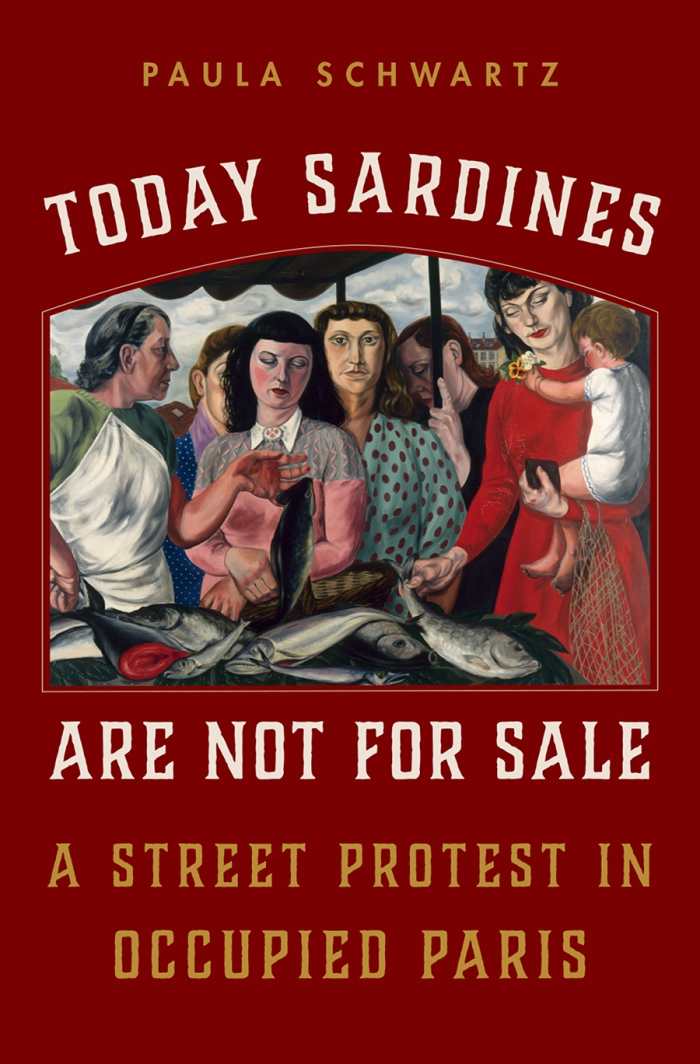
Paula Schwartz
Oxford University Press
Hardcover $29.95 (256pp)
978-0-19-068154-8
Buy: Local Bookstore (Bookshop), Amazon
On Mother’s Day in 1942, a corner shop in Occupied Paris became the site of a memorable protest. At a time when collaborationist, government-enforced rationing and hunger were rampant, an organized group of women stormed that shop, and Paula Schwartz’s expert exploration of their protest actions, Today Sardines Are Not for Sale, places their protest in context—introducing the players involved and considering their legacy more than seventy years later.
The women who led the French Communist Party-organized protest took tins of sardines and distributed them to people in line while their supporters chanted support. Men tasked with protecting the women clashed with the police; some were arrested, and later executed, after two policemen were killed in the conflict.
First describing the short, impactful protest itself, the book then peels back its layers, explaining the circumstances that led to the protest and the webbed relationships that connected its activists. A standout section describes the organizers’ plans in detail, explaining the mechanics of what needed to happen when and where things could go wrong. How the police pieced together the identities of the activists afterward is also explored.
The book emphasizes the importance of the event being led by women; the firsthand account of its lead organizer, Madeleine Marzin, informs its research. These and other participants are fascinating in their own rights; an account of Marzin’s daring escape from custody, and underground life during the remainder of the war, holds attention.
Though the women’s protest receives little attention today, it was an important symbol of resistance at a time when the Vichy reigned and the German occupation had no end in sight. Today Sardines Are Not for Sale draws upon one wartime protest event to tell a far bigger story.
JEFF FLEISCHER (February 27, 2020)
The Southern Book Club’s Guide to Slaying Vampires
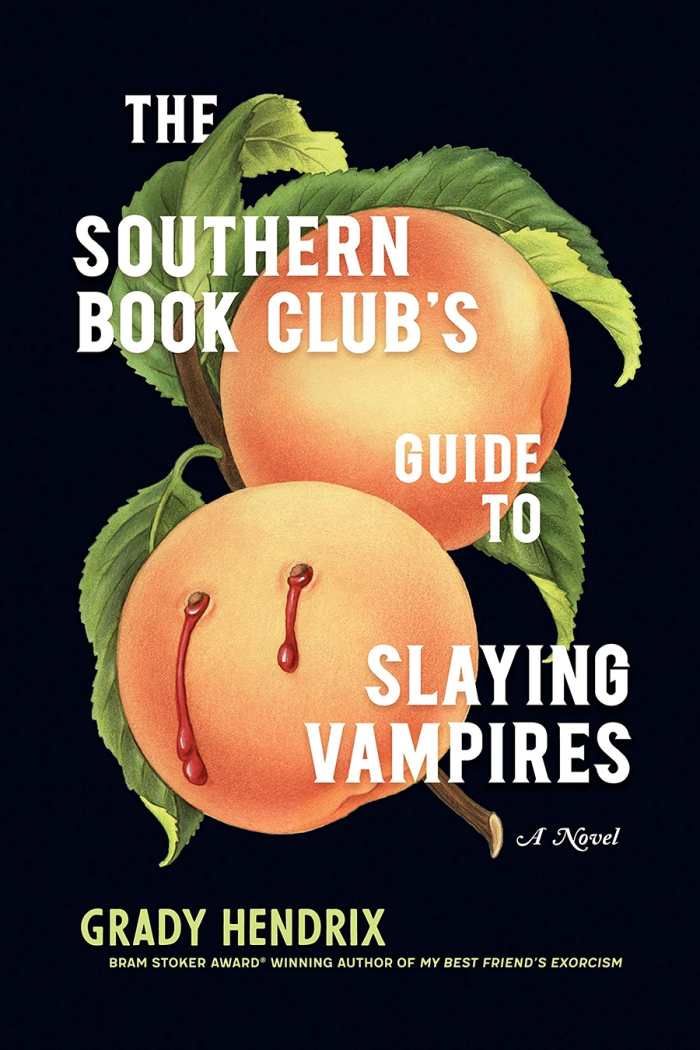
Grady Hendrix
Quirk Books
Hardcover $21.99 (400pp)
978-1-68369-143-3
Buy: Local Bookstore (Bookshop), Amazon
Buried beneath The Southern Book Club’s Guide to Slaying Vampires’s mounds of Southern-style humor and horrific plot twists ripples a coming-of-age story featuring the least likely of heroines.
When real, imagined, and metaphorical draculas conspire to drain the blood and spirits from society’s most disenfranchised members, an aimless book club’s hodgepodge of housewives and mothers are slapped out of their irrelevance by an impossible choice: they can either sacrifice their unwavering devotions to the roles assigned to them, or betray their moral imperatives, which are incompatible with those roles.
The Club’s story is led by Patricia, whose claims to fame consist of being a wife, mother, and one of the Club’s five founding members. She is a storyteller extraordinaire, her imagination vivid and her humility and empathy strong. Through her eyes: garbage cans live on the scary side of the house; and intolerably hot winds scream off the harbor, while the colder ones thrash trees, “their branches waving like lunatic arms.”
The novel exudes sufficient Southern charm and hospitality to conceal the extensive groundwork laid for the delectable surprises that are made to spring from its passages. A vampire’s hunger for blood may be insatiable, but this masterpiece novel ladles out ample thrills, chills, and relevant examples of sociopolitical injustices to satisfy any literary appetite. Whether fueled by an imminent crisis or relief from the last one, no scrap of the book’s dialogue or prose is wasted; each line generates the precise mood or degree of tension that’s best suited to launch the next shock.
The Southern Book Club’s Guide to Slaying Vampires is sprinkled with blood, guts, and credibility. Beyond its tragicomic entertainment lies a magnificent tribute to housewives, mothers, and the magical powers wielded by those rare works of fiction that succeed in revealing truths inaccessible elsewhere.
LINDA THORLAKSON (February 27, 2020)
Barbara Hodge
